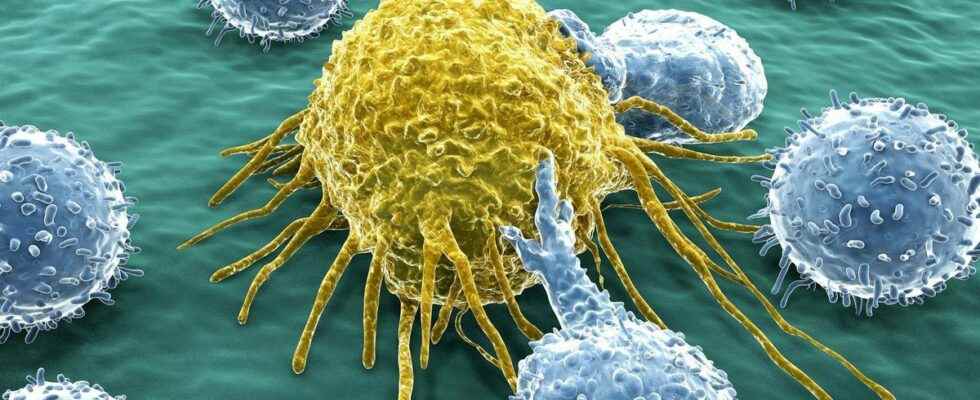Published ,
Reading 2 mins.
Spanish researchers from the Barcelona Biomedical Research Institute have just made an important discovery in the fight against cancer. They succeeded in developing an antibody directed against cancer stem cells in solid tumors.
Scientists from an international consortium led by Dr. Eduard Batlle, head of the colorectal cancer laboratory at IRB Barcelona in collaboration with the Dutch company Merus NV have developed an antibody against cancer. Called MCLA-158, this antibody is the first drug candidate that prevents the spread of cancer and its metastases. A treatment which therefore makes it possible to block the growth of tumors and to slow down the appearance of these secondary tumours. The researchers’ findings are published in the journal NatureCancer.
Using the same principle as immune system antibodies, the MCLA-158 antibody is able to recognize two different proteins on the surface of cancer stem cells. These proteins are linked to the uncontrolled growth of cancer and its spread. To act, the antibody will degrade one of these proteins. Result: the mechanisms linked to cell growth and survival will be blocked. In addition, this action is also effective against cells that allow the tumor to proliferate in other organs, which prevents metastasis.
“MCLA-158 antibody blocks the spread of cancer to other organs and slows the growth of primary tumors in mice implanted with tumor cells from colon cancer patients” explain the authors of this work.
“In mice treated with this antibody against cancer stem cells, metastases do not appear. Removing tumor stem cells may increase the effectiveness of treatments and reduce the risk of metastases”.
The researchers’ results indicate that the antibody is effective in different tumor models, including the head and neck, the esophagus and the stomach.
Consult an oncologist online
Results observed in humans
The added value of this work is that the antibodies were effective not only in mice, but also in humans. It has in fact been tested in 7 patients with cancer of the head and neck, which is very widespread and has a very poor prognosis, and all of them saw their tumor regress. Thus, three patients achieved partial remission of their disease and one of them was even considered to be in complete remission.
For the authors, their discovery could “therefore be effective in the future in preventing the occurrence of metastases in patients with localized disease”.

